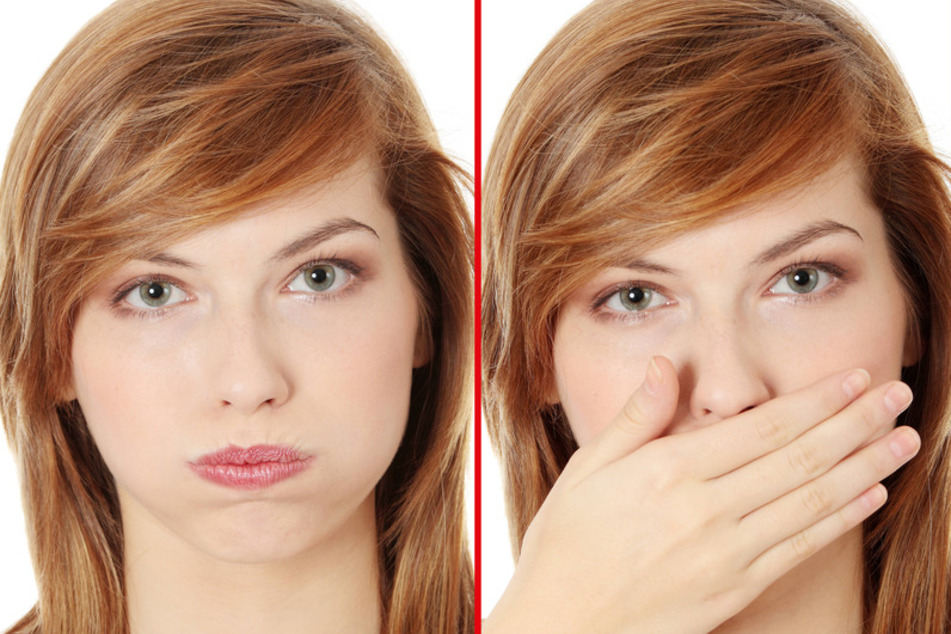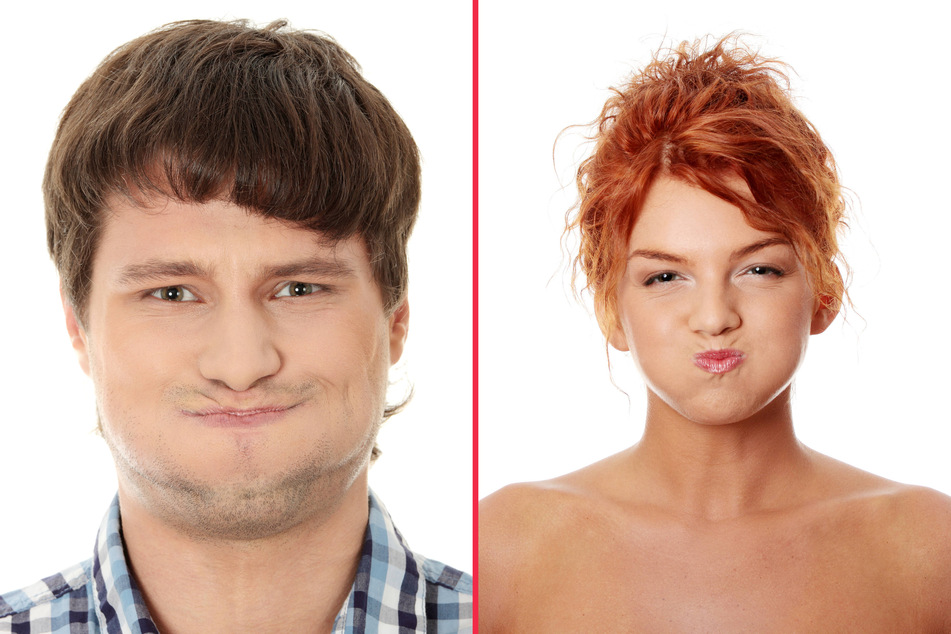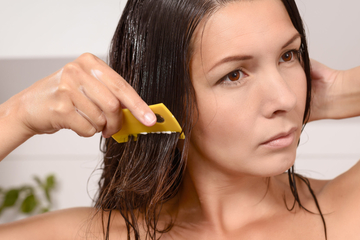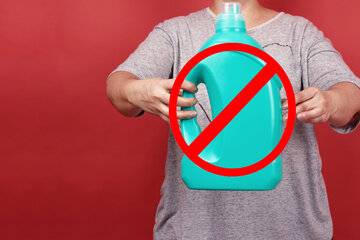What causes hiccups and how to stop them
Is there anything worse than a hiccup attack that just doesn't seem to go away? It can be incredibly frustrating, but with these few tips and tricks you'll be getting rid of the hiccups in no time at all!

When it comes to the case of the hiccups, everyone has their own theory. Does a good fright do the job, or should you maybe hold your breath? What about a nice long drink, will that stop the hiccups?
To develop strategies to get rid of the hiccups, it's important to first understand what they are and what causes them.
In this guide to gulps and burps, TAG24 will take you through the various causes of and solutions for the hiccups!
Why do people get the hiccups, and how can you stop the hiccups when they won't seem to go away? Let's find out!
What causes hiccups?
The hiccups are caused by something irritating the nerve that connects your brain with your diaphragm. This causes a gulping sensation, often coupled with medium-high pitched "hiccups" that sound out due to the air transfer that occurs when the diaphragm spasms.
When your diaphragm convulses, it forces you to suddenly suck air into your throat, which then hits your voice box. This "hiccup" sound is coupled with a tight feeling in your chest and a bodily spasm that can be quite uncomfortable. It will cause you to spit out your drink, choke on things, and even have trouble breathing.
But what is the diaphragm, and why does it do this?
The diaphragm is a muscle that sits between your lungs and your stomach, pulling down to help you inhale air and then tightening up to help you exhale that same air. It helps to maintain the flow of oxygen into and out of your lungs, and is an important piece of anatomy.
While hiccups are a pain in the backside, they're just an indication that something has annoyed your diaphragm, causing it to spasm. It's nothing to worry about, even if it goes on and on and on and never seems to end. Eventually they will stop, so try not to let them get to you. What causes the diaphragm to spasm, though?
Here are the most common causes of hiccups:
- Emotions such as feeling excited or even scared
- Overly-fast eating and drinking
- Alcohol
- Carbonated drinks
- Underlying medical issues
Try not to worry too much if you catch the hiccups – it's just your diaphragm suddenly expanding and contracting. It's very unpleasant, but it'll pass!
What are hiccups a sign of?
As we mentioned in the previous section, one possible cause of the hiccups is an underlying medical issue. While most of the time completely harmless and caused by a sudden fright or an overly ambitious meal, the hiccups can also occur for longer periods of time and more often due to other health issues.
Hiccups can be a sign of the following health conditions:
- Pneumonia
- Stomach problems
- Bowel diseases
- UTIs and bladder irritations
- Cancers
- Hepatitis
- Improper surgery
- Alcoholism
- Lesions
- Nerve damage
- Hairs touching your eardrum
- Stomach acid in the esophagus
- Sore throat or other throat issues
Important: If you are experiencing long-lasting or extreme hiccups, it's best to see a doctor. The hiccups should go away within ten minutes, at most 20-30, but if they have been going for hours or days on end then this could be a sign of something that's gone wrong with your body. Get medical advice!
Are hiccups dangerous?
Hiccups are not usually dangerous, but they can be caused by severe health problems and can be very troublesome when lasting for long periods. After all, hiccups are the spasming of your diaphragm – it's not supposed to be doing that! While they themselves won't hurt you, problematic hiccuping is worth an investigation.
Other than the various and more serious health issues that could be causing the hiccups, there's also the matter of the inconvenience. When hiccuping it can be very hard to eat properly, do exercise (as it impacts upon your ability to breathe normally), sleep, or just generally be treated like a normal person.
Probably the biggest danger, though, is that the sudden inhalation caused by a hiccup could lead to choking. While it's frustrating to have to pause meals when hiccuping, it's best to play it safe and take a break until they have gone away!

How to stop hiccups
There are many theories and techniques to getting rid of the hiccups and, let's be real, most people don't have much luck using them. That's because the hiccups are an involuntary spasm that's being caused by an irritated nerve, and isn't something that you can stop with a bit of force.
That being said, there are a number of approaches that have been generally accepted as helpful when someone has a more severe case of the hiccups. There are also a number of things that you shouldn't do, so that's also worth learning about – but let's start with the former.
Here's how to stop the hiccups:
- Try holding your breath for as long as you can, then repeat the process (each time you exhale, try to do so twice before you breathe in again).
- Breathe into a paper bag.
- Drink ice-cold water.
- Bring your knees to your chest or even try entering the fetal position.
- Eat straight sugar.
- Bite a lemon or a lime.
- Take a small shot of vinegar.
- Try to breathe while keeping your mouth closed and pinching your nose.
- Squeeze your nose.
- Massage the inner sides of your neck.
- Hold your tongue.
- Suck on an ice cube.
While these different methods aren't a guaranteed win, they can work if you're persistent. Try out a couple at a time, find your rhythm, and see what works for you.
What not to do when you have the hiccups

There are actually a variety of things that you shouldn't do if you have the hiccups. These various activities are quite likely to make matters worse, make you feel sick, or lengthen the amount of time that you have to deal with the hiccups. They are very common mistakes, so it's worth a look.
Here's what to avoid when you have the hiccups:
- Don't drink any alcohol.
- Don't smoke.
- Don't eat.
- Don't consume anything spicy.
- If you do eat, do it slowly.
- Don't chew gum, you could choke.
There's a surprising number of people that will genuinely keep eating and drinking throughout a hiccup attack – this will just make things worse. Wait a moment and they'll pass quicker.
Hiccups are the worst!
The gulp of a good hiccup is one of the must uncomfortable and annoying things that you'll ever experience. It stops you being able to breathe properly, it delays your next meal, it causes you to spit your pint all over your mate, it's something that we'd all rather avoid.
It's absolutely extraordinary that one man managed to survive 68 years of constant hiccuping – that must have been hell! While these techniques won't always work, and that can be rather annoying, just think of that man and feel grateful that your hiccups will, eventually, go away!
Cover photo: Collage: IMAGO/YAY Images/Panthermedia




